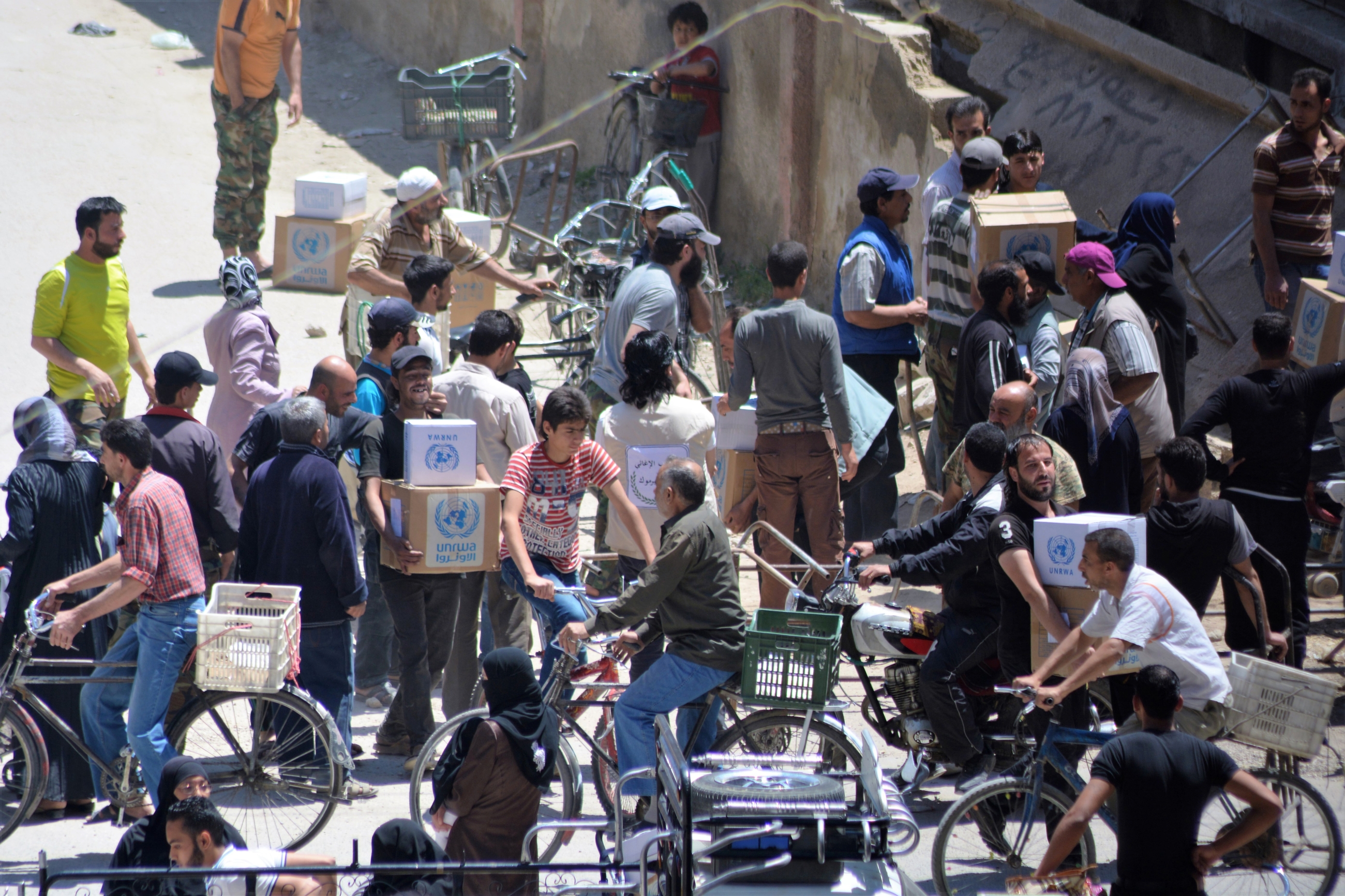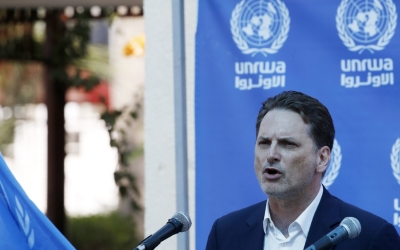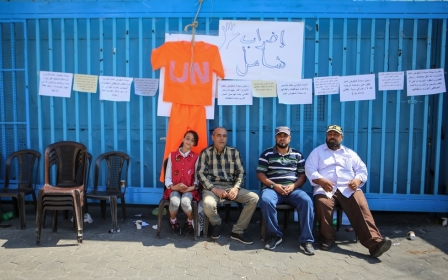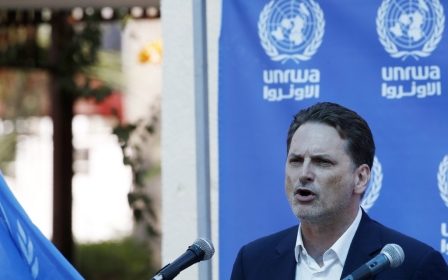Pay deal ends strike by UN Palestinian agency workers in Jordan

An agreement was reached to end a strike in Jordan by employees of the UN agency for Palestinian refugees, hours after the walkout began on Sunday, Amman's top diplomat and a trade union leader said.
Jordanian Foreign Minister Ayman Safadi announced the deal with UNRWA employees, involving salary increases of between 70 and 100 Jordanian dinars ($98 to $141) per month from January, at a late afternoon news conference with union representatives, AFP reported.
"Consequently, it has been decided to put an end to the strike," said Riyadh Zyghan, leader of the UNRWA employees' union in Jordan.
More than two million Palestinians are registered in Jordan as refugees with UNRWA, which provides everything from health care to schooling.
About 7,000 workers had joined the strike, forcing a shutdown of agency facilities, according to UNRWA spokesman in Jordan Sami Mshamsha.
Mshamsha said the union demanded a salary increase of 200 Jordanian dinars, but agreed to ask for half that amount in negotiations with UNRWA.
The union of UNRWA workers had said the action would be "open-ended" and had told pupils and students they should stay at home.
The UN agency has been facing an unprecedented financial crisis since the United States pulled its annual financial assistance of $300m in 2018.
In August, the agency was dealt a further blow when Switzerland and the Netherlands suspended their contributions, pending an investigation into mismanagement and abuse of authority.
That same month, UNWRA chief Pierre Krahenbuhl, said the agency needed an extra $150m in order to keep operating until the end of the year.
"Our [2019] budget for all UNRWA operations in Gaza, the West Bank, East Jerusalem, Syria, Jordan, Lebanon is $1.2bn. At this moment we have a remaining shortfall of $150m," he said.
The agency serves more than five million Palestinian refugees who depend on its aid in Jordan, Lebanon, Syria and the Palestinian Territories. It employs 30,000 people, mainly Palestinians.
More than 700,000 Palestinians were forced out of their homes in the events leading to the establishment of the state of Israel in 1948. Survivors and their descendants still live in camps across neighbouring Arab countries, the West Bank and Gaza.
Middle East Eye delivers independent and unrivalled coverage and analysis of the Middle East, North Africa and beyond. To learn more about republishing this content and the associated fees, please fill out this form. More about MEE can be found here.





